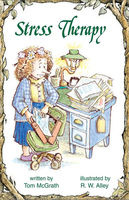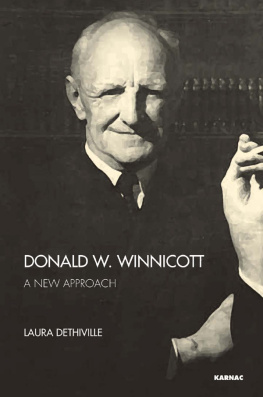Winnicott Clare - Deprivation and Delinquency
Here you can read online Winnicott Clare - Deprivation and Delinquency full text of the book (entire story) in english for free. Download pdf and epub, get meaning, cover and reviews about this ebook. City: London, year: 2012, publisher: Taylor & Francis;Jan Abram, Routledge, genre: Children. Description of the work, (preface) as well as reviews are available. Best literature library LitArk.com created for fans of good reading and offers a wide selection of genres:
Romance novel
Science fiction
Adventure
Detective
Science
History
Home and family
Prose
Art
Politics
Computer
Non-fiction
Religion
Business
Children
Humor
Choose a favorite category and find really read worthwhile books. Enjoy immersion in the world of imagination, feel the emotions of the characters or learn something new for yourself, make an fascinating discovery.
- Book:Deprivation and Delinquency
- Author:
- Publisher:Taylor & Francis;Jan Abram, Routledge
- Genre:
- Year:2012
- City:London
- Rating:5 / 5
- Favourites:Add to favourites
- Your mark:
- 100
- 1
- 2
- 3
- 4
- 5
Deprivation and Delinquency: summary, description and annotation
We offer to read an annotation, description, summary or preface (depends on what the author of the book "Deprivation and Delinquency" wrote himself). If you haven't found the necessary information about the book — write in the comments, we will try to find it.
Deprivation and Delinquency — read online for free the complete book (whole text) full work
Below is the text of the book, divided by pages. System saving the place of the last page read, allows you to conveniently read the book "Deprivation and Delinquency" online for free, without having to search again every time where you left off. Put a bookmark, and you can go to the page where you finished reading at any time.
Font size:
Interval:
Bookmark:
Deprivation and Delinquency
I warmly recommend this book to all those who would bring dispassionate compassion to the task of understanding and attempting to influence the predicament of those in emotional distress.
Herschel Prins, British Journal of Social Work
Winnicotts views are based on long experience and careful observations. They are not an explanation of the causes of delinquency, but they give valuable information on how deprivation can lead to antisocial behaviour... This collection of papers, skilfully put together, contains useful guidance for those who do residential or other work with children.
Hugh J. Klare, The Howard Journal of Criminal Justice

Routledge Classics contains the very best of Routledge publishing over the past century or so, books that have, by popular consent, become established as classics in their field. Drawing on a fantastic heritage of innovative writing published by Routledge and its associated imprints, this series makes available in attractive, affordable form some of the most important works of modern times.
For a complete list of titles visit
www.routledge.com/classics
D.W.
Winnicott
Deprivation and Delinquency
Edited by Clare Winnicott, Ray Shepherd and Madeleine Davis
With a foreword by Jan Abram

First published 1984 by Tavistock Publications Ltd
First published 1990 by Routledge
First published in Routledge Classics 2012
by Routledge
2 Park Square, Milton Park, Abingdon, Oxon OX14 4RN
Simultaneously published in the USA and Canada
by Routledge
711 Third Avenue, New York, NY 10017
Routledge is an imprint of the Taylor & Francis Group, an informa business
1984, 2012 Clare Winnicott
Foreword 2012 Jan Abram
The right of D. W. Winnicott to be identified as author of this work has been asserted by him in accordance with sections 77 and 78 of the Copyright, Designs and Patents Act 1988.
All rights reserved. No part of this book may be reprinted or reproduced or utilised in any form or by any electronic, mechanical, or other means, now known or hereafter invented, including photocopying and recording, or in any information storage or retrieval system, without permission in writing from the publishers.
Trademark notice: Product or corporate names may be trademarks or registered trademarks, and are used only for identification and explanation without intent to infringe.
British Library Cataloguing in Publication Data
A catalogue record for this book is available from the British Library
Library of Congress Cataloging in Publication Data
A catalog record for this book has been requested
ISBN: 978-0-415-67373-0 (pbk)
ISBN: 978-0-203-80524-4 (ebk)
ACKNOWLEDGEMENTS
The Psychotherapy of Character Disorders and The Development of the Capacity for Concern are reprinted from The Maturational Processes and the Facilitating Environment by permission of Hogarth Press, London and International Universities Press, New York. The Antisocial Tendency is reprinted from Through Paediatrics to Psychoanalysis by permission of Hogarth Press, London and Basic Books, New York.
FOREWORD BY JAN ABRAM
A normal child, if he has confidence in father and mother, pulls out all the stops. In the course of time he tries out his power to disrupt, to destroy, to frighten, to wear down, to waste, to wangle, and to appropriate. (p. 99).
When Winnicott addressed magistrates in a talk he gave in 1946 entitled Some psychological aspects of juvenile delinquency he wanted to convey two interlinked concepts. The first was that Freuds concept of the unconscious is essential to appreciate that the antisocial act conveys an important message to society, a message that the juvenile delinquent is not consciously aware of. The second was that the antisocial tendency is an important aspect of normal emotional development. These psychoanalytic insights, Winnicott urged, could help the magistrate acknowledge that, at one stage or another, we have all felt deprived and may have been delinquent even (or especially) the mature adult who had become a magistrate. Therefore, an examination of the delinquents unconscious motivations will resonate with an experience that all of us know something about, i.e. a sense of loss that makes us feel deprived. The question is whether this sense of deprivation is psychological or real inside or outside. For Winnicott the privileged child could feel as deprived as the under-privileged child. What was key to the childs development was having confidence in father and mother .
This important collection Deprivation and Delinquency now rightly deemed a classic, shows the genius of Winnicotts thought and its relevance to the problems facing the world in these early years of the 21st century. Each article, as with the whole of Winnicotts oeuvre, is a testament to the power of psychoanalytic understanding concerning the vast problem of human violence and destruction mans inhumanity to man. Sigmund Freuds development of psychoanalysis as a new science at the turn of the 19th century stemmed from his attempt to treat the hysteric whose symptoms offered evidence of a divided mind conscious and unconscious. The hysterics dramatic symptoms became understandable when the unconscious narrative intense oedipal sexual jealousy combined with murderous wishes was brought to light in the analytic setting. The talking cure assisted the patient to bring to consciousness forbidden repressed feelings. For more than a hundred years now psychoanalysis has proved to be effective as a therapeutic treatment. As a result there is a robust theory of psychoanalytic knowledge that offers an account of the human mind and the complexities of human relationships. The evolution of psychoanalytic theory is by no means complete and Winnicotts contribution is one particular strand of this knowledge.
Donald Winnicotts passion for psychoanalysis began in 1919. For the last nine months of World War I he had been in the position of a probationersurgeon on a destroyer who, often on his own, had to deal with the bloody atrocities of sea combat. It was an experience he never fully recovered from. As a traumatized young medical student of 23, he returned to complete his medical degree at Cambridge University and was disconcerted that he could not remember his dreams. The need to investigate this problem led Winnicott to discover Freuds first major psychoanalytic publication The Interpretation of Dreams (1900). By 1923, now a consultant paediatrician, he approached the Institute of Psychoanalysis in London with a view to starting a personal analysis the pre-requisite, then and now, to becoming a psychoanalyst. He was referred to the younger brother of Lytton Strachey, James Strachey, who had just returned from Vienna having undergone analysis himself with Sigmund Freud. Winnicott would be in 5 weekly analysis with James Strachey for the next ten years. He qualified as a psychoanalyst in 1934 and a year later became the first man to qualify as a Child Analyst.
For over forty years Winnicott combined his psychoanalytic treatment of adults and children with his work as a paediatrician predominantly in Paddington Green Hospital. It was this specific combination of psychoanalytic work psychoanalysis proper and applied psychoanalysis that led to his revolutionary development of psychoanalysis as a theory and a therapeutic treatment. The hallmark of Winnicotts extensions of Sigmund Freuds original formulations is his theory of emotional development that focuses on the infants earliest experience of his parents the parentinfant relationship. The parents part of this relationship the environmental factors contributes to the infants developing internal world. Enormous stress is laid on the mothers capacity to identify with her infants helplessness, which means that she is able to adapt to the babys early needs. This specialized form of the mothers identification Winnicott named primary maternal preoccupation. The fathers role during this particular phase of the infants life is to allow and facilitate the mother and infant to live this intense experience together. Later on, anything from 49 months onwards, the father will come into his own as the infant begins to discern the difference between mother and father. Later still, from 9 months up to about 2, part of the fathers role is to separate the mother and baby because the developing child has to recognize his position in relation to mummy and daddy. Oedipal issues need to be processed. The parents who work well together through their enjoyment of each other and family life simultaneously recognize the need for boundaries and space in the evolution of the family. These factors will best facilitate their infants normal development. The continuity of parental care, especially concentrated in the early years, is an essential factor for the growing childs mental health and its value never diminishes. Good enough parenting throughout the childs upbringing will mean that there is a good chance that the late adolescent will be able to leave home and move on appropriately. This is at the heart of Winnicotts thought and is present in all his writings from the early 1940s.
Next pageFont size:
Interval:
Bookmark:
Similar books «Deprivation and Delinquency»
Look at similar books to Deprivation and Delinquency. We have selected literature similar in name and meaning in the hope of providing readers with more options to find new, interesting, not yet read works.
Discussion, reviews of the book Deprivation and Delinquency and just readers' own opinions. Leave your comments, write what you think about the work, its meaning or the main characters. Specify what exactly you liked and what you didn't like, and why you think so.












